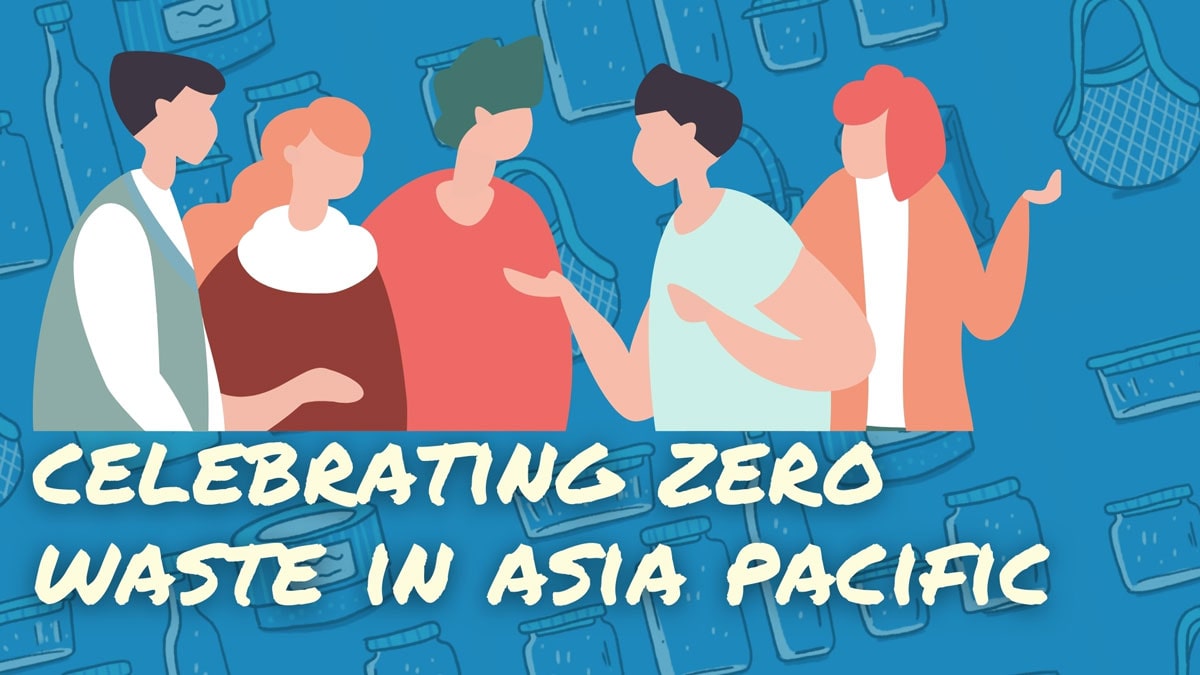Overwhelming evidence of the throwaway culture has shown that we must reevaluate how we handle our waste management systems, especially during such times of global upheaval where ordinary environmental health efforts cannot address the demands of the current situation.
A key to a socially and economically just transition is to embrace a zero waste approach. Rather than band-aid solutions that focus at the end of the pipeline stage, zero waste tackles the very root cause of the plastic crisis by continuously reducing and recovering material discards, and advocating for the phase-out of materials that cannot be recycled without negative consequences for health and the environment. Zero waste cities and communities ensure the livelihood of waste pickers – who can be said to be our last defence against plastic pollution. Zero waste cities decentralise their leadership to communities, thereby promoting intergenerational equity - a sustainable ecological future generations.
Zero Waste Month celebrations originated in the Philippines in 2014, partially due to the Presidential Proclamation No. 760, and promoted widely by NGOs and communities that had already adopted this approach to manage their material discards. These celebrations have amassed such momentum as celebrated in nearly all countries in Asia and are garnering traction in other regions of the world. This year, BFFP members in Asia Pacific showcased local and innovative practices that reduce single-use plastics, promote composting of biodegradable wastes and reuse. The event highlighted the region as a haven of real solutions to plastic pollution and mainstream zero waste practices.
In January, BFFP members in the Philippines lined up various activities, from the management of pandemic waste and composting of holiday food leftovers to campaigns against the promotion of waste-to-energy by lawmakers. EcoWaste Coalition, Mother Earth Foundation and No Burn Pilipinas have featured local, sustainable actions and waste reduction practices in the Philippines.
Vietnam Zero Waste Alliance hosted “Zero Waste Tet” at the beginning of February, an online contest that invited participants to share zero waste practices to increase awareness in promoting a sustainable celebration of the Lunar New Year. The event reached 110,000 people on their Facebook page and 3,000 post engagements. VZWA ended the month with a successful launch of the Vietnam Brand Audit Report.
In New Zealand, Refill New Zealand hosted the Refill Challenge supported by the Gisborne District Council. During the event, select businesses served as refill stations, where participants of the challenge could fill up their water bottles for free. RefillNZ aims to promote refilling with water taps to reduce plastic bottle use in Tairawhiti Gisborne, New Zealand.
Trash Hero World launched an online challenge called Trash Hero Zero Waste Month to increase awareness of zero waste practices such as using reusable containers, composting food wastes, and buying bulk. The online challenge engaged 32,000 people on Facebook, with more than 24 individuals from Thailand, Malaysia, and Indonesia sharing photos and stories of their zero waste commitments on social media.
Environmental and Social Development Organization (ESDO) hosted a webinar on Zero Waste Community and Sustainable Living where they shared effective practices to establish zero waste communities.
In Indonesia, the National Waste Awareness Day was observed on February 21, commemorating the infamous landslide of Leuwih Gajah Landfill in Bandung. Several groups and organisations, including Trash Heroes, conducted a series of clean-ups and brand audits. Aliansi Zero Waste Indonesia (AZWI) discussed the economic potential of zero waste and how zero waste sustains livelihoods.
Break Free from Plastic hosted online screenings of Story of Plastic, a documentary revealing the complex problem of plastic pollution. The documentary exposes the oil and gas sponsorship of plastic production, plastic recycling inefficiency and emphasises the need for a systems change.
Between January and March, the Global Alliance of Incineration Alternatives (GAIA) hosted the annual International Zero Waste Cities Conference, highlighting that a zero waste approach is possible even in different contexts and cultures through community participation. GAIA also launched the Job Creation Potential of Zero Waste Solutions book, showing that waste management systems with the best environmental outcomes create the most local employment.
Zero Waste Month highlights effective zero waste practices and the efforts of BFFP members in the Asia Pacific. The month-long celebration in February shows that zero waste is only possible if communities and sectors work together towards a post-pandemic era free from plastic, centred on equity and environmental sustainability.
The information used in this blog was collected from BFFP member organisations in Asia Pacific. If you’re interested to know more, you may send an email to Janssen Calvelo <janssen@breakfreefromplastic.org>.




